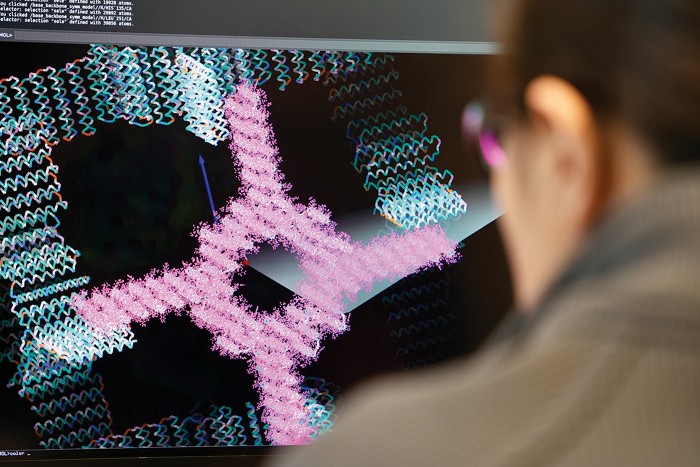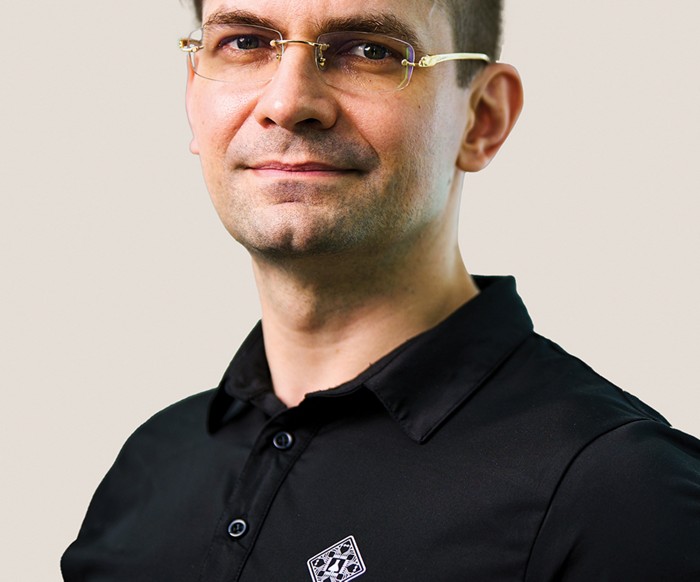Advertisement
Grab your lab coat. Let's get started
Welcome!
Welcome!
Create an account below to get 6 C&EN articles per month, receive newsletters and more - all free.
It seems this is your first time logging in online. Please enter the following information to continue.
As an ACS member you automatically get access to this site. All we need is few more details to create your reading experience.
Not you? Sign in with a different account.
Not you? Sign in with a different account.
ERROR 1
ERROR 1
ERROR 2
ERROR 2
ERROR 2
ERROR 2
ERROR 2
Password and Confirm password must match.
If you have an ACS member number, please enter it here so we can link this account to your membership. (optional)
ERROR 2
ACS values your privacy. By submitting your information, you are gaining access to C&EN and subscribing to our weekly newsletter. We use the information you provide to make your reading experience better, and we will never sell your data to third party members.
Physical Chemistry
‘Prometheus’
Sci-fi epic struggles under the weight of its ambitions but delivers on thrills, awe, and scientific speculation
by Jovana J. Grbić, Ph.D.
June 8, 2012
Watch Trailer | Credit: 20th Century Fox Film
It has been three decades since Ridley Scott’s acclaimed science-fiction masterpiece “Blade Runner” practically reinvented the genre, and he has not made another sci-fi film since. Why not? “Because I haven’t come across anything worthwhile for me to do with enough truth, originality, and strength,” he says. “ ‘Prometheus’ has all three.” With such heightened expectations, one would expect a bold and daring storyline from Scott. And although the film has plenty of action, viewers may ultimately find its navel-gazing themes overbearing.
Loosely based on elements from “Alien” and originally intended as a prequel to that film, “Prometheus” is set 80 years in the future. A team of archaeologists discovers a series of cave etchings with a clue to the origins of humankind on Earth—a far-away planet in the darkest corner of the universe. Commissioned by the conglomerate Weyland Corp., a band of explorers embarks on a $1 trillion journey to meet our makers in their native land. But when the team makes the shocking discovery that their makers’ paradise is a way station for a dangerous experiment in bioengineering, they begin the fight of their lives to save humanity.
Interspersed within this nonstop intergalactic thrill ride are a series of interpersonal conflicts that challenge some of our most cherished scientific and philosophical ideas. The sterile, corporate (and somewhat surprisingly selfish) interests of the journey, funded by enigmatic Peter Weyland (Pearce) and carried out by Weyland Industries executive Meredith Vickers (Theron) are in stark contrast to the spirit of scientific exploration for the sake of discovery and learning. The mission’s lead scientists are archetypes for the conflict of faith versus science. Elizabeth Shaw (Rapace) is deeply religious and views the mission as a chance to meet the gods, to affirm her faith and everything she believes in. Her partner both in the lab and personally, Charlie Holloway (Marshall-Green), is a classic adventurous scientist who is on the journey to push the envelope in the quest for answers.
Rounding out the crew of 17 scientists is David (Fassbender), a human-replica android servant of superior intelligence created by Weyland Corp. David is an amalgamation of virtually every artificial intelligence character sci-fi has ever created, from Hal to C3PO to the Terminator. Originally manufactured to tend to the ship during the two-year journey and to gather intelligence, David is nevertheless acutely aware of his superiority over his human charges. He even has the will to help them figure out the nefarious scheme of the alien predecessors and fight a battle for their survival. Responding to Holloway’s flippant response that humans made David simply because they could, he retorts: “Imagine how disappointed you’d be if your makers gave you the same response?”
Scott’s commitment to the grand scope of “Prometheus” rewards the audience with a technological and engineering masterpiece of science fiction, starting with the visually arresting sets and action sequences. So extraordinary are the special effects of the scientific exploration of the alien planet and consequent battles that one would naturally assume they are computer generated. However, they’re not. Scott had the enormous sets constructed and shot the majority of the film using them.
The state-of-the-art spacecraft, modeled after current NASA and European Space Agency designs, was constructed with every piece of technology one might need to probe the reaches of outer space. Techno-geeks will salivate over sleek gadgetry such as the self-operating medical pod, research labs capable of immediately isolating and sequencing strands of DNA, and traveling “mind pop” mapping devices that can isolate life, not to mention sleep-state pods where the scientists are suspended for their two-year journey. “Prometheus” gives a credible peek into what our science and technology capabilities could be a hundred years from now.
But for all of its ambition and far-reaching scope, “Prometheus” ultimately buckles under its own weight of self-importance. The existential questions it asks are sci-fi staples: Who are we? Where do we come from? How do we reconcile science and religion in our quest to define our identities? And finally, embodied by the advanced-technology android David, what are the parameters of responsibility in the creation of life? Unfortunately, the film only dabbles enough with each to titillate without ever providing fulfilling answers. The audience may finish the “Prometheus” quest philosophically unsatisfied, but the journey there is still an action-packed, viscerally stunning sci-fi ride.
Jovana J. Grbić, Ph.D., is the creative director of Los Angeles-based ScriptPhD, specializing in science communication in entertainment, advertising, and media, and tweets as @ScriptPhD.




Join the conversation
Contact the reporter
Submit a Letter to the Editor for publication
Engage with us on Twitter